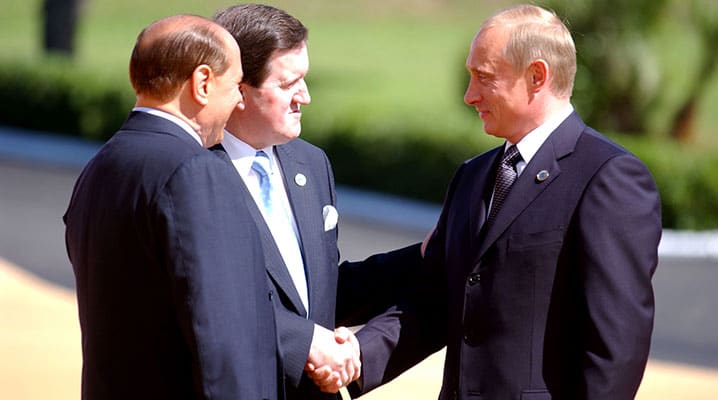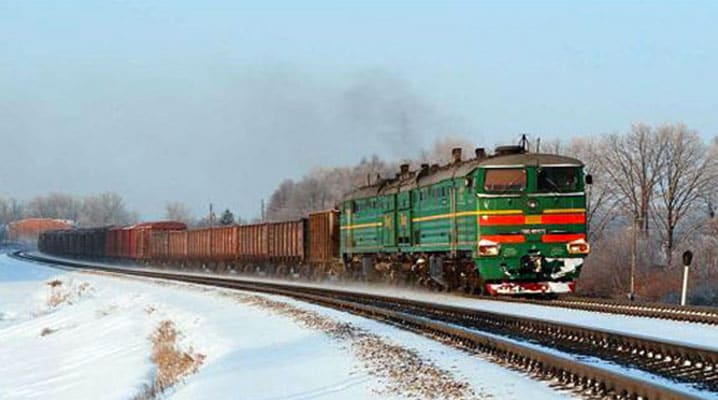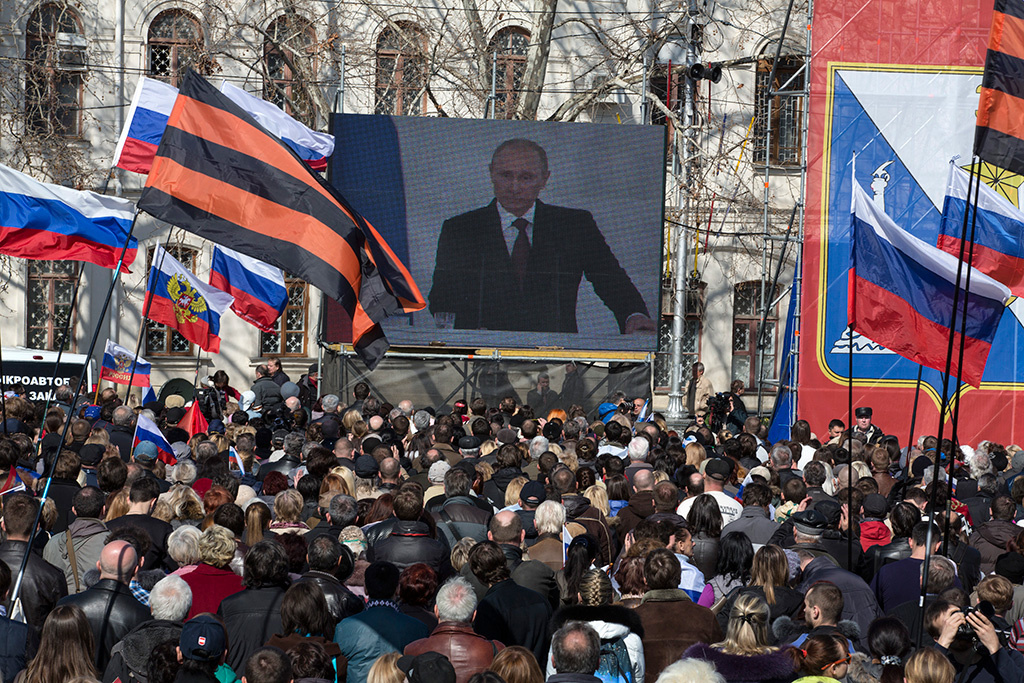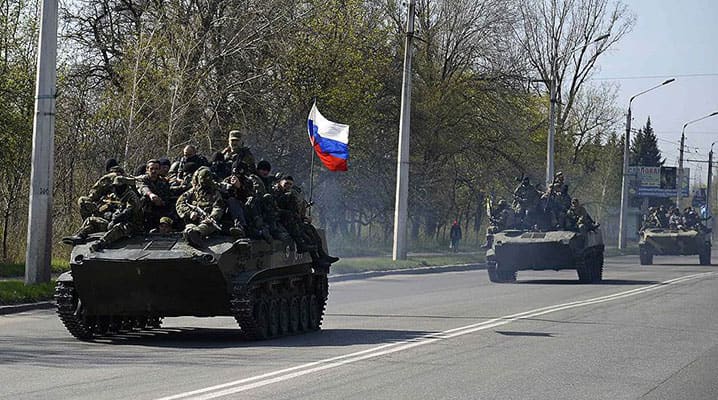Marking the 15th anniversary of the NATO-Russia Council, a Russia expert looks back in disappointment at how the high hopes for the partnership have been dashed in recent years.
Much of my time, focus and personal energy were devoted to advancing NATO-Russia cooperation for many years. Until March 2014, for over seventeen years, relations between NATO and Russia had developed at a rather good pace and resulted in some concrete and significant common projects. So, watching many years’ worth of difficult negotiations and considerable investments unravel overnight because of a decision taken in the middle of the night on 22/23 February 2014 (as President Putin himself recounted in a documentary aired in 2015) has been extremely disappointing.
The honeymoon
When I first joined NATO in 2004 to work on the Russia desk, relations with Russia could not have been more different. The Rome Declaration, which established the NATO-Russia Council (NRC), had just been adopted in 2002, and it was an important upgrade from the NATO-Russia Founding Act of 1997. There was a lot of optimism and expectation at NATO that the Cold War legacy of confrontation could definitively be put behind, while a new era of cooperation with Russia would serve to dispel any lingering suspicions of the past decades.
NATO Secretary General Lord Robertson (centre) shakes hands with Russian President Vladimir Putin with Italian Prime Minister Silvio Berlusconi in attendance at a NATO-Russia summit meeting in Rome. The Rome Declaration established the NATO-Russia Council as a mechanism for consultation, consensus-building, cooperation, joint decision and joint action – 28 May 2002 © NATO
While the enthusiasm was more evident on the NATO side, one could also feel it on the Russian side. Russia has always taken NATO seriously, which is the reason why it still respects the Organization and values the NRC, whatever the rhetoric in recent years. The expectation of many on the NATO side, naïve as it may have been in retrospect, was that the story of NATO-Russia relations could develop in a similar way to the story of the European Union. Working successfully in one area of common interest would effectively spill over into other areas and that would impact positively the overall context of our relations.
In those years, voices of scepticism were dismissed as a hangover from the Cold War. When these voices came from some of the newly minted NATO members, they were often suspected of being hostages of their own history. Russia was willingly integrating in or affiliating with Western structures, the high oil prices and a more open economy in Russia made it possible for a fledgling middle class in Russia to grow and travel and discover that the West was quite likable. It did not seem that a swing back to the Cold War ways was possible or that anyone in Russia would want that.
And there were many things we wanted to – and started doing – together.
For example, we worked together on stabilizing Afghanistan. While neither Russia nor Afghanistan had any desire to consider Russian troops taking part in the mission of the NATO-led International Security Assistance Force, Russia facilitated NATO’s mandate by allowing transit through its territory, training helicopter technicians and providing helicopter spare parts at preferential prices. NATO and Russia also successfully trained Afghan, Pakistani and Central Asian counter-narcotics officers for many years.

At its peak, as much as 40 per cent of all cargo destined for the NATO-led International Security Assistance Force entered Afghanistan by rail through northern and central lines of communication, some of it transiting through Russia. © NATO
NATO agreed to provide Russia with innovative and safe explosive disposal technology to assist with eliminating old munitions from Kaliningrad. This project took a year and a half to negotiate and involved several million dollars of investments from both NATO Allies and Russia.
NATO and Russia established jointly connected centres for the monitoring of civilian flights and intercepting so-called renegade aircraft, a problem which had become evident with 9/11.
NATO also assisted Russia with submarine rescue technology, which helped save the lives of seven Russian marines in 2005.
As late as 2013, NATO and Russia decided to cooperate in the organization of the safe extraction of the Syrian regime’s chemical weapons. After many months of difficult negotiations, the agreement was well within reach in early 2014.
And much more. The Russia desk at NATO was buzzing with joint activity in those years. The Russian mission was larger than the mission of any other NATO partner and some Allies, as we and they increasingly needed more specialists to work on a growing number of common projects.
Of course, it was not all roses. We also had some significant disagreements, such as over NATO’s decision to build its own ballistic missile defence system, or Russia’s decision to suspend the implementation of the Treaty on Conventional Armed Forces in Europe (CFE Treaty). However, the desire to work together on areas of common interest, in the hope that gaining common ground on some issues would help us solve our differences on others, persisted for many years. Unfortunately, the opposite turned out to be the case.
Irreconcilable differences?
Today, fifteen years from the signature of the Rome Declaration, and in the aftermath of Russia’s aggression against Ukraine, it has become evident that the large majority of the international community does not share the Kremlin’s preferences for how security in Europe and elsewhere should be organized. When President Putin openly advocates for an order based on the Yalta agreements, as he did in his 2015 speech at the UN General Assembly, this comes as no surprise. Many nations in Europe do not have a fond memory of the Yalta agreements, and the world has changed a lot since those times. Gone are the days when the powerful took what they wanted and the powerless had to adapt. It is for this reason that Russian proposals for a new security treaty in Europe were rejected not just by NATO members, but also by a number of other nations, including those in Russia’s own neighbourhood.

Residents of Sevastopol, Crimea, watch a broadcast of Russian President Vladimir Putin on 18 March 2014, the day of Russia’s illegal annexation of Crimea.
Yet, many still ask the question of why we cannot just be pragmatic and work on areas of common interest – and agree to disagree on things like Russia’s illegal annexation of Crimea and its continued aggression against Ukraine.
The answer to that is that we already tried it, for many years. Our cooperation with Russia through the NATO-Russia Council was more extensive than that with any other partner of NATO. And it benefitted Russia at least as much as it benefitted the Alliance. And yet, contrary to the early enthusiasm which followed the signature of the Rome Declaration, it did not bring us closer together nor help us overcome our differences.
The most important point of principle is that NATO remains a community based on values. This is the main reason why a number of countries still aspire to join the Alliance, and why NATO remains relevant today.
If NATO puts aside its position of principle by accepting Russia’s use of force to change the internationally agreed borders in Europe, in exchange for routine and renewed project work with Russia, the future of NATO itself is at stake.
It is at stake not because Russia will next attack a NATO member (I do not believe this is possible as Russia knows well it would lose any military confrontation with NATO), but because NATO’s own credibility as an Alliance will be put in question. If NATO relativizes its principles, which are the very foundation for its success, the Alliance will eventually self-destruct.
These are also the principles which Russia itself subscribed to and committed to respect. In the NATO-Russia Founding Act of 1997, in the Rome Declaration of 2002, as well as in the UN Charter, the Helsinki Final Act, and in the Budapest Memorandum of 1994, among others.

Pictured: Russian forces entering a captured town in Donbas, Ukraine, in April 2014 – Russia’s aggression on Ukraine violates not only Ukraine’s sovereignty and territorial integrity but goes against the very principles on which NATO is based and which Russia itself subscribed to and committed to respect. © Euromaidan Press
For this reason, it is now Russia’s own credibility as a reliable partner that is at stake. Could we rely on any hypothetical commitment by Russia?
While Russia is still undermining Ukraine’s sovereignty and territorial integrity on a daily basis, while it continues to maintain troops in Transnistria against the sovereign will of the Moldovan government, while it continues to undermine Georgia’s sovereignty, the argument that, maybe, NATO can somehow reconstruct at least some of the project cooperation we had before is neither convincing nor useful.
But neither does it mean that all of our interaction with Russia must now come to a halt. Isolating Russia and applying the Yalta-era containment approach is also not an option. Historical experience, geography and the rise of globalization make this neither possible, nor desirable.
Stay strong but keep talking
So, if we cannot go back to the NATO-Russia Council of the last two decades – but we should also not cut all ties with Russia – what options remain?
As agreed by NATO leaders in Warsaw last year, strong deterrence coupled with meaningful dialogue make sense. Unlike during my first years in the job, I do not have expectations for this dialogue to bring about practical cooperation projects. But it is necessary to continue to tell Russia directly that, in the 21st century, principles matter. They do eventually prevail over force. Small countries’ sovereignty cannot be considered relative. And, there are consequences to breaking internationally agreed legal obligations.
There are also a number of other issues that it is useful to discuss with Russia. In a situation of increased military activity and exercises, it is essential to have open and reliable channels of communication, including among the military leaders, to avoid misunderstanding or miscalculation. Such conversations should lead to reducing risks and introducing greater predictability and transparency in our relations.
Despite the fact that we no longer cooperate on joint projects, both NATO and Russia continue to have a common interest in the stability of Afghanistan, a subject which is still important to discuss, including under the current circumstances.
So, the NRC continues to serve an important purpose – to ensure that even while we disagree on matters of principle, we still have a platform where we can discuss these disagreements, as well as address some key issues of mutual concern. This is something both NATO and Russia continue to value, which is the reason why both are willing to hold periodic meetings of the NRC.
Nevertheless, this is not what the NRC was originally conceived for. It is also not my preferred state for NATO-Russia relations. I am sometimes nostalgic about the early NRC period when we were able to meet often and negotiate agreements which were later respected and implemented. So, it is with sadness that I look at the Rome Declaration and the fifteen years that have passed, and at what could have been. And I am indeed very critical of Russia’s recent policy choices, which made it necessary for NATO radically to downgrade the original ambitious framework for our relations.
At the same time, however, I also recall that many in both NATO and Russia were convinced of the type of relationship they committed to building together in Rome in 2002. In fact, it was President Putin himself who negotiated and invested a lot in the NRC. Although this relationship could not be more different today, I am also aware that some in Russia are still willing to work towards a more constructive relationship with NATO.
